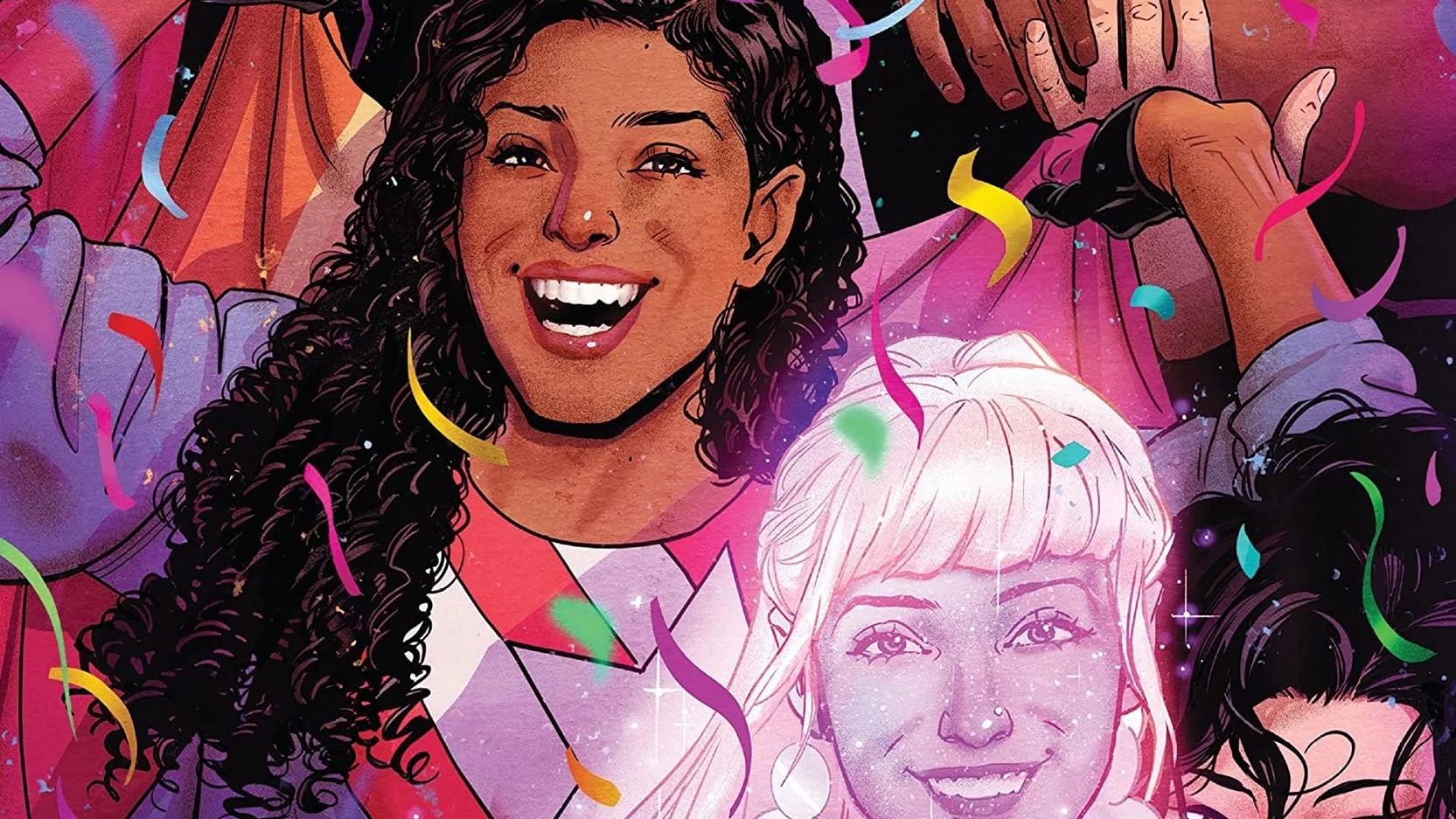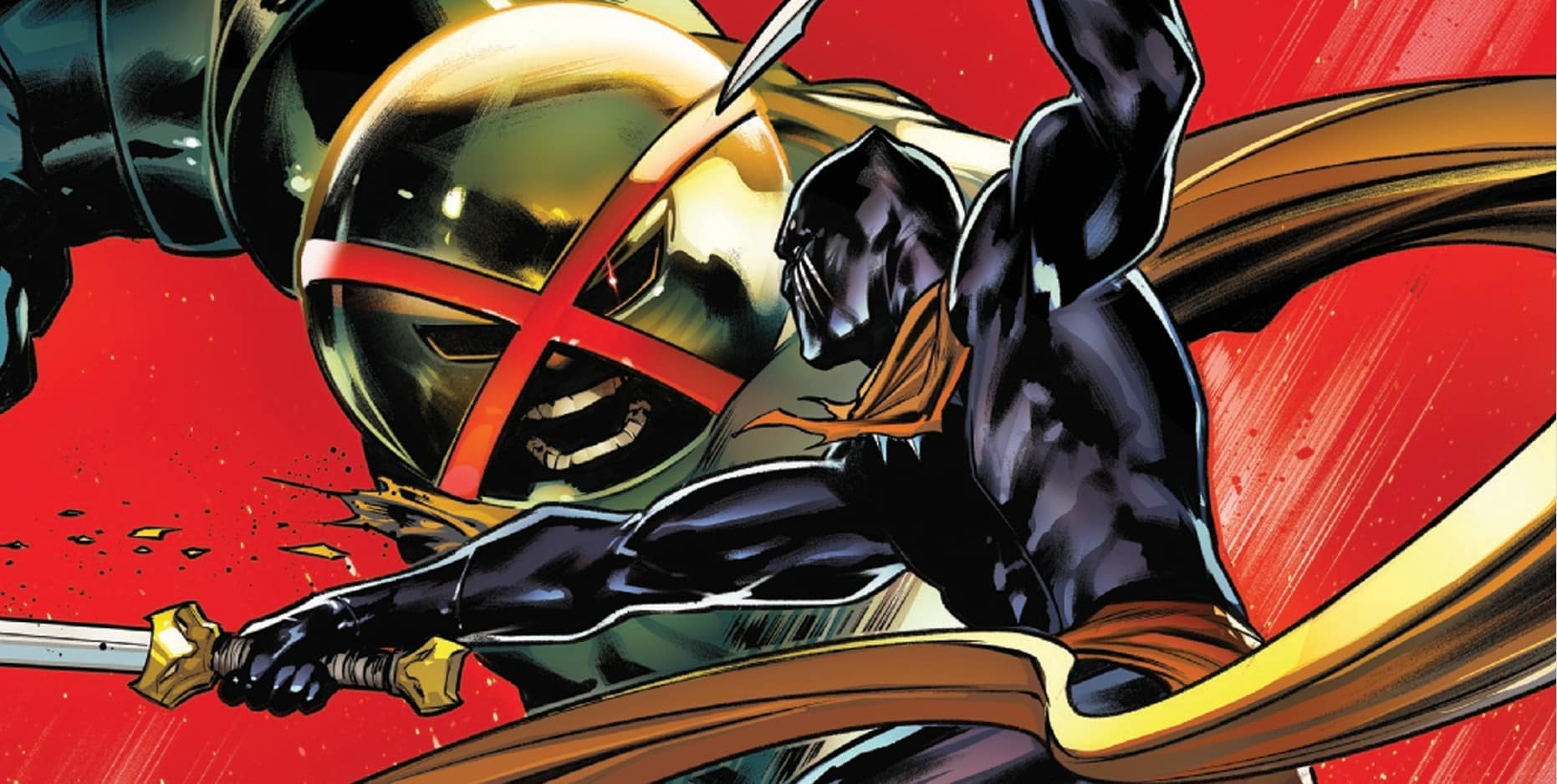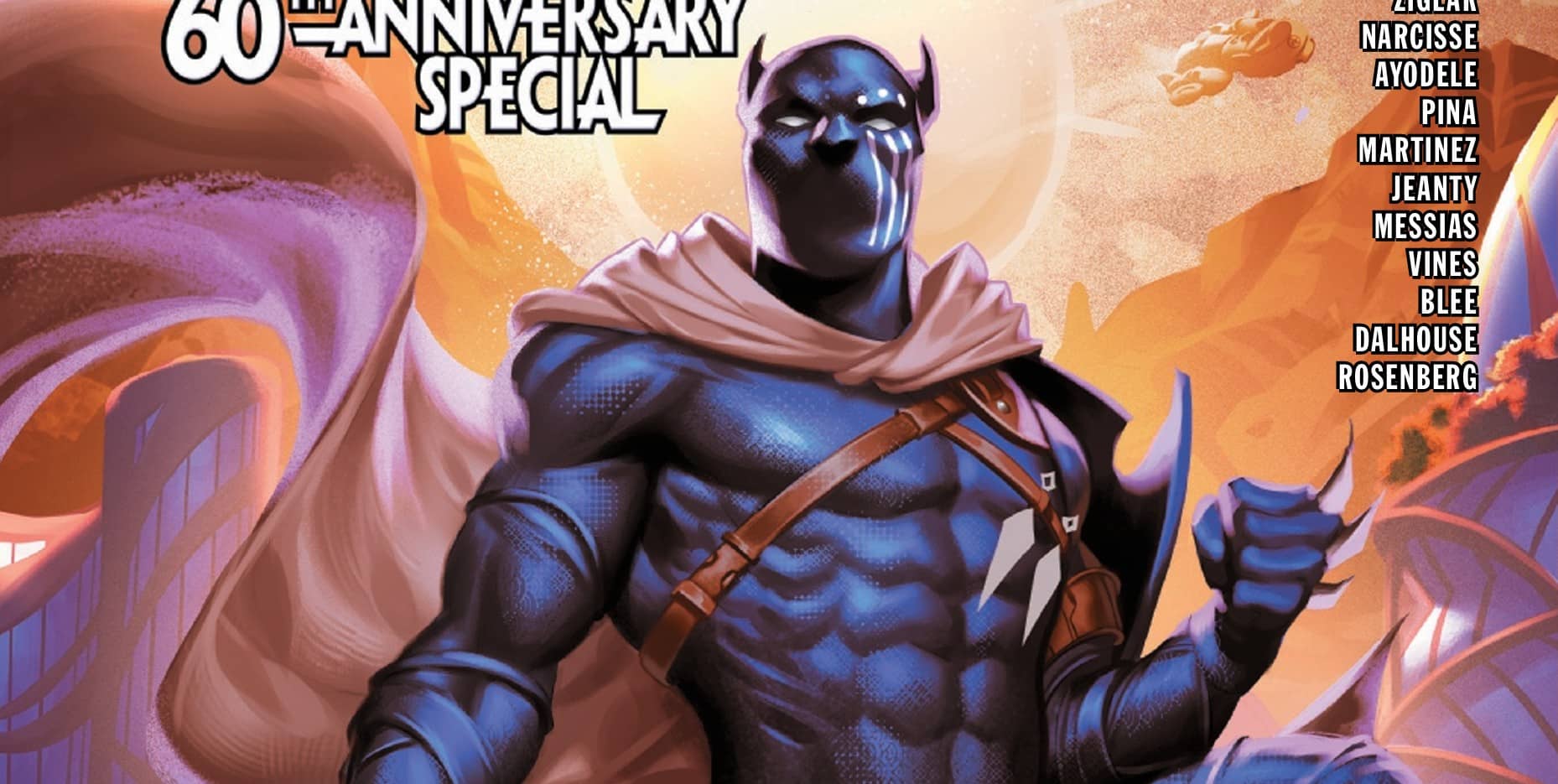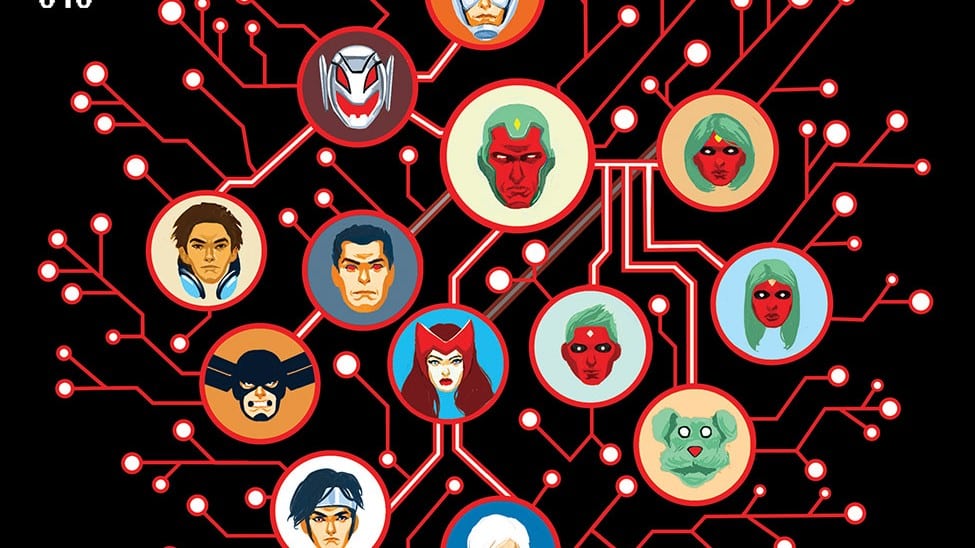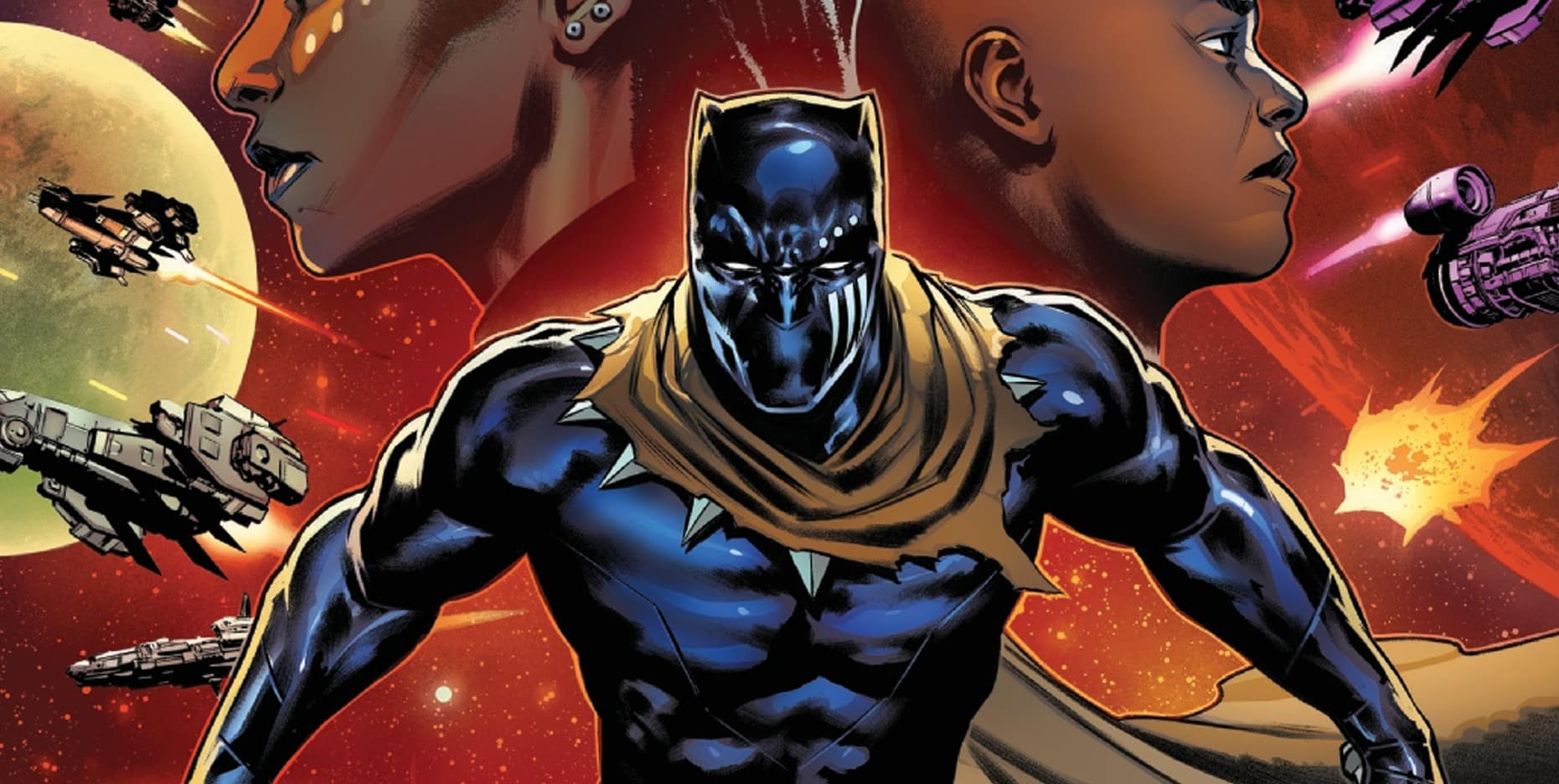It’s that time of year again, when large corporations show their tolerant spirit by placing rainbow bunting everywhere! One of those large corporations is Marvel Comics, and boy, or girl, or nonbinary person, or gender-defying space dragons, have they got a show for you! Marvel Voices: Pride (2022), with stories by (deep breath) Charlie Jane Anders, Christopher Cantwell, Grace Freud, Danny Lore, Ira Madison III, Andrew Wheeler and Alyssa Wong; art by Stephen Byrne, Scott B. Henderson, Ro Stein and Ted Brandt, Lorenzo Susi, Lee Townsend, Lucas Werneck, Brittney L. Williams, Kie Zama; letters by Ariana Maher with Clayton Cowles; colors by Brittany Peer, Rico Renzi, Rachelle Rosenberg, Jose Villarubia, Michael Wiggam, and– of course– Tamra Bonvillain.
I love more than half of this anthology comic, and I don’t want to come off as a cheerleader,* so I’m going to get the understandable suspicion of Pride tie-ins out of the way up front by directing it at the issue’s prose. The letters and essays in this issue (by movie bigwig Alex Phillips, for example) work admirably to welcome new Marvel readers, and nothing in them is flat wrong. The Comics Code Authority really did prohibit on-page declarations of queerness (let alone explicit queer romance) for a very long time, and Alpha Flight 106 (1992) really was Northstar’s groundbreaking coming-out issue. But for those who already know the history, these paragraphs may seem a bit self-serving, celebrating mostly unnamed writers who kept the subtextual queerness up through the 1970s and 1980s (no mention of Claremont, Nocenti, or DeMatteis), and congratulating the company for putting forward such queer A-list couples as Venomm and Taku, Union Jack and Dyna-Mite, Karolina Dean and Julie Power.
Raise your hand if you’ve heard of all six characters. Now raise your hand if you’ve only heard of Julie and Karolina. And now raise your hand if you understand that queer writers, artists and editors probably want what you want, but they have to pick their battles, because if they get the axe, we get nothing.
Now sit down, unless you prefer to stand, because this Pride issue feels like a battle we won. Marvel’s Voices: Pride (2021) #1 was a sheaf of unrelated queer-positive stories, introducing a generically winged queer mutant so Karma would have somebody to date. (I liked it. Cori didn’t)This one includes a few stories that fit together, around the trans superpowered teen support group at the Matt Baker House, a center for LGBTQ+ youth in Queens, and around various incarnations of Loki. And most of the stories rock. (I’ll ignore the rest: we don’t have all day.)
First, Loki, or rather Lokis: it’s not a Marvel Pride celebration without a long trumpet blast for the Young Avengers, who get back together– in sleek panels reminiscent of Jamie McKelvie’s– when Young Loki sends an unexpected distress call. The youthful crew snark at one another in Joe’s Diner, just like old times, and America Chavez– still smarting from the injustice done her in last year’s miniseries — at least shows she’s part of the team. The distress call sends our queer-positive, cosmos-hopping teens to a gathering of Young Loki’s exes, who have hung him upside down as a kind of prelude to some kind of fake torture, but the torture never happens, because he’s turned his exes’ genuine antagonisms into an excuse for a reunion.
“You set this whole thing up so we would hang out with you?” America asks, and the answer, of course, is yes. Young Loki wants to play tricks on everybody almost as much as he wants to make the genuine connections to other teens that he (being Loki) finds only through dangerous practical jokes. (And yes, Loki’s pronouns appear to be he/him, right now, though we all know they can be anything. And no, the ex who appears as a cat– an angry, fluffy, white cat– was not always a cat. But they’re a cat now.)
Loki uses Pride as a selfish excuse to get attention, which makes this issue very meta, and makes the Loki parts fun. In another tale he uses Asgard’s first-ever Pride holiday as an excuse to gather queer godlings and Valkyries in the ice realm of Jotunheim, beneath a giant picture of himself: “Look at all of the fun Pride merch we’ve got!” he exclaims, while his guests are shivering, displeased. The rainbow-bright art matches the lighthearted story: I was reminded of Strange Academy, though at the moment, I’d rather read this than that. As for what Loki’s jovial, obtuse, bellicose, well-intentioned, and perhaps bisexual (who can say?) brother, the guy with the hat and the hammer, thinks about Pride… you’ll see when you get to the end of the story. It’s not a game-changer, but it’s big, cartoony fun, not least for its lesbian Valkryie narrator (no, not Dani Moonstar; another Valkyrie).
And that’s just the hors d’oeuvre. For the second course, we get support group at the Matt Baker House helmed by the delightful Dennis Dunphy. ak.a. D-Man. Who is Matt Baker? This is Matt Baker. And who are these super-trans teens? They’re all new characters, so far as I know.** They’re all delightful, and their rather specialized powers poke fun at common elements of trans lives. Pity Girl “can hypnotize people with sad stories,” and she’s got a pout to match. Aphelion (named for the Earth’s farthest point from the sun) can “freeze things,” because “there’s a whole mostly empty universe inside me.” Another mutant can take the shape of anybody she thinks is really cool (I can relate). And Rex, a.k.a Good Arson, commits arson, except somehow it’s all good. He’s got the kind of dudely enthusiasm that you need strong support and, also, strong pushback to develop, and my Word program wants to correct “dudely” almost as often as D-Man wants to correct Rex.
Remember the support group for non-passing mutants? Same vibe here, but this one’s even better. And D-Man himself, as Rex realizes, has a secret that will help him defend his kids… a secret that’s almost visible under his button-down shirt. That secret comes with its own campy but true life lesson: “figuring out who you are,” D-Man says, “is a journey that never ends.”
This collection does end, in a story that’s better than I could have imagined: it’s the first superhero comic written by the excellent science fiction novelist Charlie Jane Anders, and my eyes are full of stars. Shela Sexton (Escapade) and Morgan Red (no code name) are “ride-or-die trans mutant besties from way back,” as well as members of D-Man’s support group. Morgan’s power is [redacted, but it’s awesome, and it has limited combat use]. Shela can temporarily switch bodies or attitudes with someone nearby. She’s also agile and generally very much into becoming a master thief, at least if she can steal stuff from a techbro whose real-life model rhymes with Peel-on Husk. And her power happens to be an allegory for what happens when we read comics: get close to a character, and a face, and you can imagine switching places: you as them, or them as you.
Anders, Stein, Brandt and Bonvillain get a page count long enough to give their story multiple scenes. Scene one unfolds as an airborne heist, and it’s a delight, beginning with Shela, airborne: she’s an enthusiastic, headstrong teen hero who really should meet her fans some day (and she’ll have fans soon). Other scenes are three-panel Peanuts pastiche, where the much younger, round-headed Shela and Morgan speculate and commiserate about their futures. Shela’s parents can handle raising a mutant, but can’t bring themselves to accept her as their daughter, so she moves in with Morgan: thus the story title, “permanent sleepover.” Which is also what young mutants on Krakoa get: should she move to Krakoa? Must she move to Krakoa? Can she get trained without moving? Shela Sexton wants to know. So does the White Queen.
There’s more, including elegant panels with vertigo, wisecracks and fight scenes, and internal dialogue full of teen angst. The teenagers look like teenagers with non-supermodel body types (more common than it was in the 1980s, but still a virtue worth remarking). You might be able to predict a beat or two, but sometimes you need a familiar plot in order to bring out brand new characters, and… and…
More like this please. More like this, stat. And more Escapade– which is coming: she’s slated for the New Mutants (where Charlie Jane Anders will write a three-issue guest arc this fall). This is how you do it: this is how you use an anthology comic to introduce a brand-new character, one you expect to stick around.
*Cheerleading is a difficult and physically demanding sport. All honor to the people who do it; there really should be a hero based on that.
**Has anyone seen Jessie Drake?
Stephanie Burt is Professor of English at Harvard. Her podcast about superhero role playing games is Team-Up Moves, with Fiona Hopkins; her latest book of poems is We Are Mermaids. Her nose still hurts from that thing with the gate.

